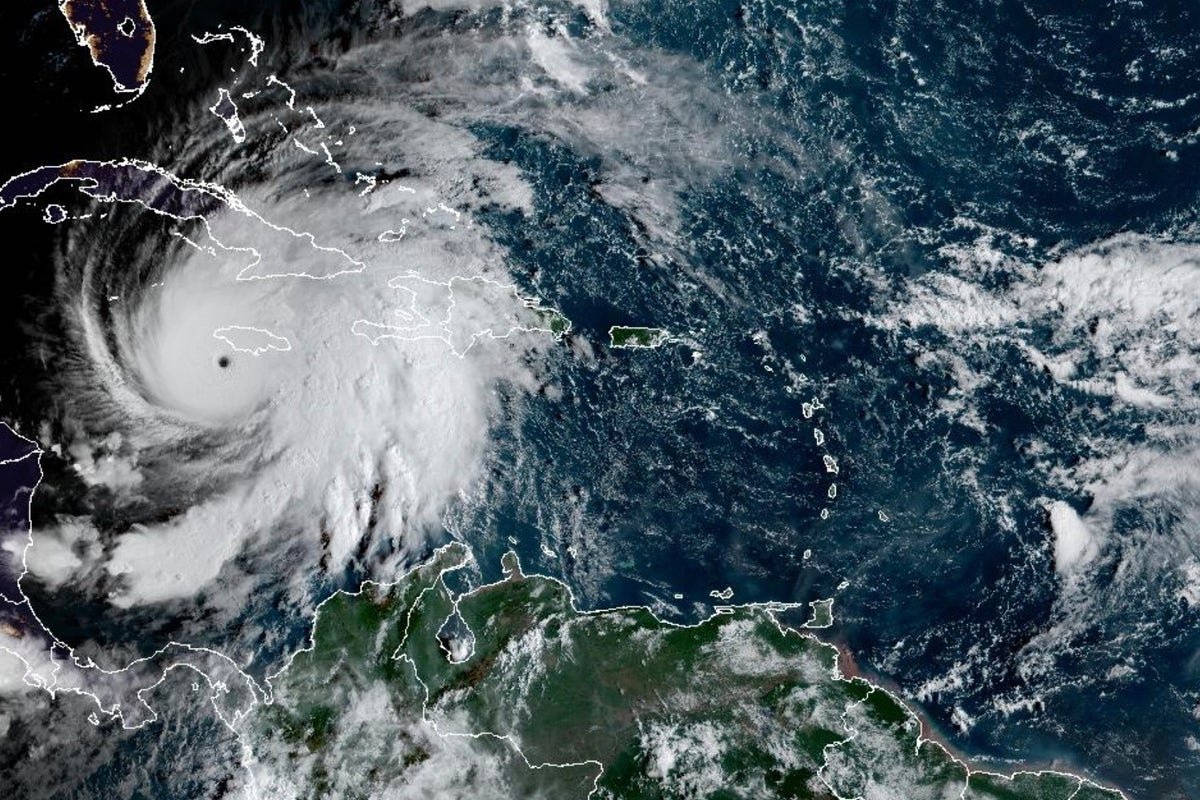Hurricane Melissa made landfall in Jamaica on Tuesday as a devastating Category 5 storm, tied for the strongest Atlantic hurricane landfall in history.
Although the extent of the devastation is not yet known, aid organizations are already mobilizing to help across the Caribbean. As is typical in disasters, nonprofit groups told The Associated Press that cash is the best way to help, as unsolicited donations of goods can overwhelm already strained systems. Experts recommend using sites like Charity Navigator or the Better Business Bureau’s Wise Giving Alliance to check out unfamiliar charities before donating.
Here’s some of the work being done and ways to support people affected by Hurricane Melissa in Jamaica and beyond.
Locals Support Locals: United Way of Jamaica
The 40-year-old nonprofit has a history of supporting Jamaicans after disasters, particularly the country’s farmers.
Last year, the United Way of Jamaica mobilized aid for women farmers hit hard by Hurricane Beryl, helping them replace farm equipment, repair roofs and pay school fees for their children just as the school year began.
The Kingston-based group accepts cash donations.
Immediate Relief and Reconstruction: CORE
CORE local staff are already responding in Haiti and will arrive in Jamaica when airports reopen to deliver relief items such as hygiene kits and tarps, conduct medical assessments and distribute immediate cash assistance.
The group, which was active in Jamaica after Hurricane Beryl in 2024, will also help households remove debris and rebuild homes.
The Los Angeles-based nonprofit is accepting cash donations for its Emergency Response Fund.
Installation of backup power systems: Footprint Project
The solar nonprofit is providing communities and first responders with temporary power equipment to aid their response and restore communications.
The Footprint Project is sending 150 portable solar and battery power plants from Florida to Jamaica and deploying mobile microgrid equipment from Puerto Rico and Barbados, working with local partners such as the Jamaica Renewable Energy Association to ensure the systems are deployed where they are most needed.
The New Orleans-based group accepts cash donations to support staff and logistics, as well as in-kind donations of “turnkey” renewable energy technologies that can be shipped quickly. Equipment donations can be coordinated through give@footprintproject.org.
Transport of goods to relief groups: Airlink
Airlink partners with major airlines such as United and American and uses their underbelly cargo space to move critical aid to disaster zones.
It moves cargo to Jamaica on behalf of 16 NGOs, including the World Food Program and Mercy Corps. It will also charter at least two planes to move more goods to its partners, free of charge.
The Washington, DC-based group accepts cash donations and donations of United frequent flyer miles.
Medical assistance: Direct emergency assistance
The humanitarian organization supports the Caribbean year-round with medicine and other supplies and has delivered more than $3 million in medical aid in the past month to areas now under threat.
Direct Relief will support health facilities, many of which are in coastal and low-lying areas vulnerable to flooding and power outages. The group also sent 100 field medical kits to Jamaica’s National Health Fund and is working with the Pan American Health Organization to preposition supplies to Cuba.
The Santa Barbara, Calif.-based group is accepting cash donations and said any contributions specifically designated for “Hurricane Melissa” will go directly to those efforts.
High Quality Supply Donations: Good360
Good360 connects corporate donors who have excess, high-quality supplies with nonprofits in need of those items.
The group has prepositioned supplies at a warehouse in Florida and will work with local groups to deliver what is needed. It expects demand for generators, tarps and hygiene kits.
Good360 accepts cash donations to support the delivery of these supplies.
Long-Term Recovery: Center for Disaster Philanthropy
While the immediate needs will be great, the CDP focuses on long-term recovery, an often underfunded aspect of disaster preparedness.
The group will provide grants to local organizations most aligned with needs, focusing on the most vulnerable residents and emphasizing solutions that leave communities better prepared for future climate events.
The Washington, DC-based organization is accepting cash donations for its Atlantic Hurricane Season Recovery Fund.
——
Associated Press coverage of philanthropy and nonprofits receives support through AP’s partnership with The Conversation US with funding from the Lilly Endowment Inc. AP is solely responsible for this content. For complete AP philanthropy coverage, visit https://apnews.com/hub/philanthropy.
